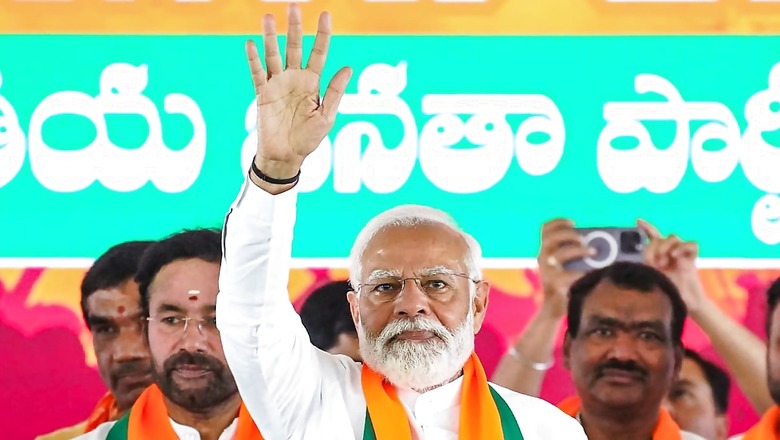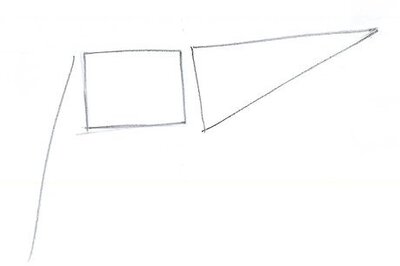
views
Political analysts say that the BJP cannot achieve its self-set goal of 370 seats in the forthcoming Lok Sabha elections without winning a considerable number of constituencies in southern India. They point out that the party has peaked or is near the peak in the northern belt. Additional gains for it can, therefore, only come from the south, comprising Karnataka, Andhra Pradesh, Telangana, Kerala and Tamil Nadu. Also, they add, that the BJP has traditionally been weak in the southern region (barring Karnataka), and securing seats there is a near impossible task.
The analysts admit that the party, and especially Prime Minister Narendra Modi, has been on an unprecedented aggressive campaign mode in the south, and this can lead to the party enhancing its vote share by a considerable margin. However, they add that it will have to wait for beyond 2024 for the vote-share to be converted into a significant number of seats.
This, then, has been the predominant conversation in the print, the electronic and the social media. What has not been given adequate attention is the fact that southern India will also determine if the Congress party can go above 50 seats in the Lok Sabha. From all current estimations and poll surveys, it is faced with yet another washout in the key northern states of Uttar Pradesh, Bihar, Rajasthan and Madhya Pradesh. It is nowhere in the fight in the eastern states of West Bengal and Odisha, as well. In the last elections, it got one seat in Odisha and had two seats in the former; this time, it stands the risk of losing even those three. The news is grim also from the western state of Gujarat, where it got zero seats in 2019, though it hopes to do better in Maharashtra.
There is a presumption that the Congress is relatively stronger in the states of the south, and will, therefore, perform much better than the BJP. The numbers of the 2019 general election are interesting in this context. The Congress had secured 30 of a total of 129 seats in the five states mentioned earlier, while the BJP had got 29. That’s hardly a big margin of difference. It is true that the BJP went seat-less in three of those states—Tamil Nadu, Andhra Pradesh and Kerala, but in the other two (Telangana and Karnataka), it won more seats than the Congress party.
The Congress is banking on a better performance this time in both Telangana and Karnataka, and its optimism stems from the victories it scored in the recent assembly elections. But there is enough historical material to show that assembly wins need not necessarily be repeated in general elections. Not too long ago, the party had won the assembly elections in Rajasthan and Madhya Pradesh, but was wiped out in the Lok Sabha polls held five months later.
The BJP has Modi on the ticket in the general elections, whereas the Congress party has no leader in comparison. Local matters and local leaders take a backseat in the Lok Sabha contest, and national issues and national leaders drive people’s perceptions. A Siddaramaiah or a Revanth Reddy might be formidable figures in state contests, but on a national canvas, Rahul Gandhi pitted against Modi makes it a no-contest.
That said, if you go beyond scratching the surface, the Congress party’s performance even in the southern states had not been all that glittery in 2019. Barring Kerala, where it picked 15 of the 20 seats, it performed below par elsewhere. True, in Tamil Nadu, it won eight seats, but it was riding piggyback on its ally, the DMK. In Telangana, though, where it was on its own, it could manage just three out of the 17 seats, only three out of 25 in Andhra Pradesh, and just one out of 28 in Karnataka.
The Congress party perhaps derives confidence of doing well in Telangana and Andhra Pradesh with the recent additions of leaders from the Bharat Rashtra Samithi (formerly the Telangana Rashtra Samithi), and Jagan Mohan Reddy’s sister, YS Sharmila to its camp. It also believes that after the depths it had plunged to, in Karnataka and in Andhra Pradesh in 2019, it can only do better.
However, in Andhra Pradesh, it is not only faced with Jagan Mohan Reddy’s YSRCP might, but also the newly-stitched formidable Telugu Desam Party-BJP-Jana Sena alliance. From current indications, it’s this coalition that appears to be better poised to take advantage of any resentment and anger that exists in the people against YSRCP.
Given that the Congress party’s fortunes are so heavily dependent on its showing in southern India, it is but naturally concerned with the aggressive campaign the BJP has launched in that region. Prime Minister Modi has been leading the charge, repeatedly visiting the southern states, addressing gatherings and conducting road shows. From all indications, his call has been resonating with the ordinary masses.
While, in Karnataka, the BJP has many known faces, in Tamil Nadu it is K Annamalai who has gained enormous traction over the past months. Annamalai is educated and articulate, and has a starch-clean reputation. Equally importantly, he has an excellent connect with the people and enjoys the Prime Minister’s confidence. He has taken on both the Dravida parties, the DMK and the AIADMK, head-on, and believes that the people of the state are now prepared to look beyond the two Dravidian parties. By contrast, the Congress party, having been subservient to the DMK for long, has failed to nurture a strong local leadership over the years, unlike in the case of Karnataka. It does not have a leader to match Annamalai’s persona.
Overall, the battle in the southern states for both the BJP and the Congress presents an interesting contrast. While the BJP is expected to sweep the national elections even if it does no better than it did in 2019 in the south, the grand old party is doomed to remain stuck at the miserable 50-odd seat level if it fails to enhance its performance. The BJP sees the South as a gateway for 370 (and 400+ for the NDA); for the Congress, the South is the proverbial straw that can save it from sinking even deeper.
The writer is an author and a public affairs analyst. Views expressed in the above piece are personal and solely that of the author. They do not necessarily reflect News18’s views.














Comments
0 comment